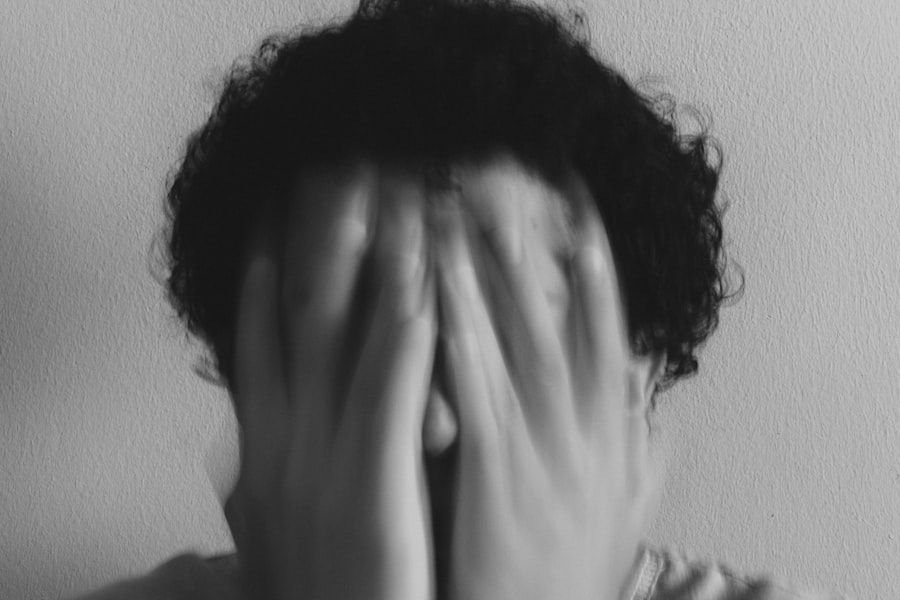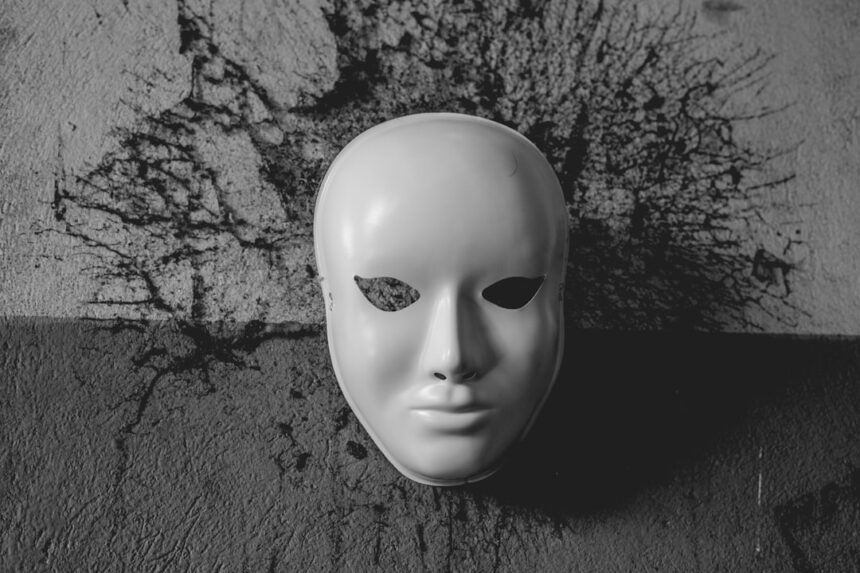Depersonalization Disorder is a mental health condition characterized by a persistent feeling of detachment from oneself. You may experience a sense of being an outside observer of your thoughts, feelings, or body, as if you are watching your life unfold from a distance. This can lead to a profound sense of unreality, where you might feel disconnected from your own identity or emotions.
The experience can be unsettling and disorienting, often leaving you questioning your own existence and reality. This disorder is not merely a fleeting feeling of disconnection; it is a chronic condition that can significantly impact your daily life. You may find it challenging to engage in social situations, maintain relationships, or even perform routine tasks.
The feelings associated with depersonalization can be so intense that they interfere with your ability to function normally, leading to increased anxiety and distress. Understanding this disorder is crucial for recognizing its effects and seeking appropriate help.
Key Takeaways
- Depersonalization Disorder is characterized by feeling detached from oneself and one’s surroundings, often described as feeling like an outside observer of one’s own thoughts, feelings, and body.
- Derealization Disorder involves feeling detached from the external world, with surroundings appearing unreal, dreamlike, or distorted.
- Key differences between Depersonalization and Derealization Disorder include the focus of detachment, with Depersonalization focusing on the self and Derealization focusing on the external world.
- Common symptoms of Depersonalization Disorder include emotional numbness, feeling disconnected from one’s body, and a sense of unreality.
- Common symptoms of Derealization Disorder include feeling like the world is artificial or like a dream, distorted perception of time and space, and feeling disconnected from the environment.
- Causes of Depersonalization and Derealization Disorder may include trauma, stress, anxiety, depression, and substance abuse.
- Diagnosis and treatment options for Depersonalization Disorder may involve therapy, medication, and lifestyle changes to manage symptoms and improve quality of life.
- Diagnosis and treatment options for Derealization Disorder may also include therapy, medication, and lifestyle changes to address symptoms and improve daily functioning.
- Depersonalization and Derealization Disorder can impact daily life by causing distress, impairing social and occupational functioning, and affecting overall well-being.
- Coping strategies for individuals with Depersonalization or Derealization Disorder may include mindfulness techniques, grounding exercises, self-care practices, and seeking support from mental health professionals and support groups.
- Seeking support for Depersonalization and Derealization Disorder is important for receiving proper diagnosis, treatment, and ongoing management of symptoms, as well as finding understanding and validation from others who have similar experiences.
What is Derealization Disorder?
Derealization Disorder, while often mentioned alongside depersonalization, has its own distinct characteristics. In this condition, you may feel as though the world around you is unreal or distorted. You might perceive your surroundings as dreamlike or foggy, leading to a sense of detachment from the environment.
This can create an unsettling experience where familiar places and people seem foreign or unrecognizable. The sensation of derealization can be frightening, as it challenges your perception of reality. You may feel as though you are living in a movie or that the world is lacking in depth and substance.
This disorder can occur in isolation or alongside depersonalization, but it primarily affects how you perceive the external world rather than your internal self. Understanding derealization is essential for recognizing its impact on your life and finding effective coping mechanisms.
Key Differences between Depersonalization and Derealization Disorder

While depersonalization and derealization disorders share similarities, they are fundamentally different experiences. Depersonalization focuses on the internal self, where you feel detached from your thoughts and emotions. You might feel as if you are observing yourself from outside your body, leading to a sense of disconnection from your identity.
In contrast, derealization centers on the external world, where you perceive your surroundings as unreal or distorted. These differences can manifest in various ways. For instance, during depersonalization, you may struggle with feelings of emptiness or numbness regarding your emotions.
Conversely, during derealization, you might experience confusion about the reality of your environment, leading to heightened anxiety about your surroundings. Recognizing these distinctions is vital for understanding your experiences and seeking appropriate treatment.
Common Symptoms of Depersonalization Disorder
| Symptom | Description |
|---|---|
| Feeling detached from your body or mind | Feeling like you are observing yourself from outside your body or feeling like things around you are not real. |
| Numbness or lack of emotion | Feeling emotionally numb or disconnected from your own feelings. |
| Difficulty connecting with your surroundings | Feeling like you are disconnected from the world around you or that things seem unreal or hazy. |
| Memory problems | Difficulty remembering certain events or feeling like your memories are foggy or distant. |
| Sense of time distortion | Feeling like time is passing too quickly or too slowly, or feeling like you are disconnected from the passage of time. |
Individuals with Depersonalization Disorder often report a range of symptoms that can vary in intensity and duration. One common symptom is a persistent feeling of being disconnected from one’s body or thoughts. You may feel as if you are watching yourself from a distance, leading to a sense of unreality that can be distressing.
This detachment can also manifest as emotional numbness, where you struggle to connect with your feelings or express them appropriately. Another prevalent symptom is difficulty concentrating or focusing on tasks. You might find it challenging to engage fully in conversations or activities because your mind feels foggy or distant.
This cognitive disruption can exacerbate feelings of anxiety and frustration, making it difficult to navigate daily life. Additionally, some individuals may experience physical sensations such as dizziness or lightheadedness during episodes of depersonalization, further complicating their ability to function normally.
Common Symptoms of Derealization Disorder
Derealization Disorder presents its own set of symptoms that can be equally disconcerting. One of the hallmark symptoms is the sensation that the world around you is distorted or unreal. You may perceive objects as flat or lacking depth, leading to confusion about your surroundings.
This altered perception can create a sense of detachment from reality, making it difficult to engage with the environment fully. Another common symptom is the feeling that time has slowed down or sped up during episodes of derealization. You might find yourself questioning whether events are happening in real-time or if they are merely figments of your imagination.
This temporal distortion can contribute to feelings of anxiety and disorientation, making it challenging to navigate social situations or even familiar environments. Recognizing these symptoms is crucial for understanding the impact of derealization on your daily life.
Causes of Depersonalization and Derealization Disorder

The exact causes of Depersonalization and Derealization Disorders remain unclear, but several factors may contribute to their development. One significant factor is trauma; individuals who have experienced traumatic events often report episodes of depersonalization or derealization as a coping mechanism. Your mind may create these dissociative experiences as a way to protect itself from overwhelming emotions associated with trauma.
Additionally, stress and anxiety play a crucial role in triggering these disorders. High levels of stress can lead to feelings of detachment as your mind attempts to cope with overwhelming situations. Substance use, particularly hallucinogens or other psychoactive drugs, can also induce symptoms of depersonalization and derealization.
Understanding these potential causes can help you identify triggers and seek appropriate support.
Diagnosis and Treatment Options for Depersonalization Disorder
Diagnosing Depersonalization Disorder typically involves a comprehensive evaluation by a mental health professional. You may undergo interviews and assessments to determine the severity and frequency of your symptoms. It’s essential to provide detailed information about your experiences to help the clinician make an accurate diagnosis.
Treatment options for Depersonalization Disorder often include psychotherapy as a primary approach. Cognitive-behavioral therapy (CBT) has shown promise in helping individuals manage their symptoms by addressing negative thought patterns and developing coping strategies. Additionally, mindfulness techniques can be beneficial in grounding yourself in the present moment, reducing feelings of detachment.
In some cases, medication may be prescribed to address underlying anxiety or depression that may accompany the disorder.
Diagnosis and Treatment Options for Derealization Disorder
Similar to Depersonalization Disorder, diagnosing Derealization Disorder involves a thorough assessment by a qualified mental health professional. You will likely discuss your symptoms in detail, including their frequency and impact on your daily life. This evaluation helps differentiate derealization from other mental health conditions that may present similar symptoms.
Treatment for Derealization Disorder often mirrors that of depersonalization, with psychotherapy being a cornerstone of effective management. Cognitive-behavioral therapy (CBT) can help you challenge distorted perceptions and develop healthier coping mechanisms. Additionally, grounding techniques—such as focusing on sensory experiences—can assist in reconnecting with reality during episodes of derealization.
In some cases, medication may be considered to alleviate co-occurring anxiety or mood disorders.
How Depersonalization and Derealization Disorder Can Impact Daily Life
Living with Depersonalization or Derealization Disorder can significantly affect various aspects of daily life. You may find it challenging to engage in social interactions due to feelings of detachment or unreality. This can lead to isolation and loneliness as you struggle to connect with others on an emotional level.
Relationships may suffer as friends and family may not fully understand what you are experiencing. Moreover, these disorders can hinder your ability to perform at work or school. Concentration difficulties and cognitive disruptions can make it challenging to complete tasks effectively, leading to frustration and decreased productivity.
The constant battle with feelings of unreality can also contribute to heightened anxiety levels, creating a cycle that further complicates daily functioning.
Coping Strategies for Individuals with Depersonalization or Derealization Disorder
Implementing effective coping strategies is essential for managing the symptoms associated with Depersonalization and Derealization Disorders. One helpful approach is grounding techniques, which involve focusing on sensory experiences to reconnect with reality.
Additionally, maintaining a routine can provide structure and stability in your life. Establishing regular sleep patterns, engaging in physical activity, and practicing mindfulness can help reduce anxiety levels and promote overall well-being. Journaling about your experiences may also serve as an outlet for processing emotions and tracking triggers that contribute to episodes of depersonalization or derealization.
Seeking Support for Depersonalization and Derealization Disorder
Seeking support is crucial when navigating the challenges posed by Depersonalization and Derealization Disorders. Connecting with mental health professionals who specialize in dissociative disorders can provide valuable insights and guidance tailored to your needs. Support groups—whether in-person or online—can also offer a sense of community where you can share experiences and coping strategies with others who understand what you’re going through.
Additionally, educating yourself about these disorders can empower you to advocate for your needs effectively. Understanding the nature of depersonalization and derealization can help demystify your experiences and reduce feelings of isolation. Remember that seeking help is a sign of strength; reaching out for support can pave the way toward healing and recovery as you navigate the complexities of these disorders together with others who share similar experiences.
Depersonalization and derealization disorders are often misunderstood and can be challenging to differentiate. Depersonalization involves a feeling of detachment from one’s own body or thoughts, as if observing oneself from outside, while derealization is characterized by a sense of unreality or detachment from the surrounding environment. Both conditions can be distressing and impact daily functioning. For a deeper understanding of these disorders and their distinctions, you can explore a related article on the topic by visiting Unplugged Psych. This resource provides valuable insights into the symptoms, causes, and treatment options for these complex mental health issues.
LEARN MORE About Unmasking the Mysteries Behind Depersonalization and Derealization
FAQs
What is depersonalization disorder?
Depersonalization disorder is a mental health condition characterized by feeling detached from one’s own thoughts, feelings, and body. Individuals with this disorder may feel like they are observing themselves from outside their body or like they are in a dream.
What is derealization disorder?
Derealization disorder is a mental health condition characterized by feeling detached from one’s surroundings. Individuals with this disorder may feel like the world around them is unreal or distorted, as if they are living in a movie or a dream.
What are the differences between depersonalization and derealization disorder?
Depersonalization disorder involves feeling detached from oneself, while derealization disorder involves feeling detached from one’s surroundings. Individuals with depersonalization disorder may feel like they are disconnected from their own body and thoughts, while individuals with derealization disorder may feel like the world around them is unreal or distorted.
What are the common symptoms of depersonalization and derealization disorder?
Common symptoms of depersonalization disorder include feeling like an outside observer of one’s thoughts or body, feeling like one’s body is not their own, and feeling emotionally numb. Common symptoms of derealization disorder include feeling like the world is distorted or unreal, feeling like one is living in a dream, and experiencing heightened sensory experiences.
How are depersonalization and derealization disorder diagnosed?
Depersonalization and derealization disorder are diagnosed based on a thorough psychiatric evaluation, including a discussion of symptoms, medical history, and any potential underlying causes. A mental health professional may also use specific assessment tools to help make a diagnosis.
What are the treatment options for depersonalization and derealization disorder?
Treatment for depersonalization and derealization disorder may include psychotherapy, medication, and self-help strategies. Cognitive-behavioral therapy (CBT) and medication such as antidepressants or anti-anxiety medications may be used to help manage symptoms and improve overall well-being. Self-help strategies such as stress management and relaxation techniques may also be beneficial.




